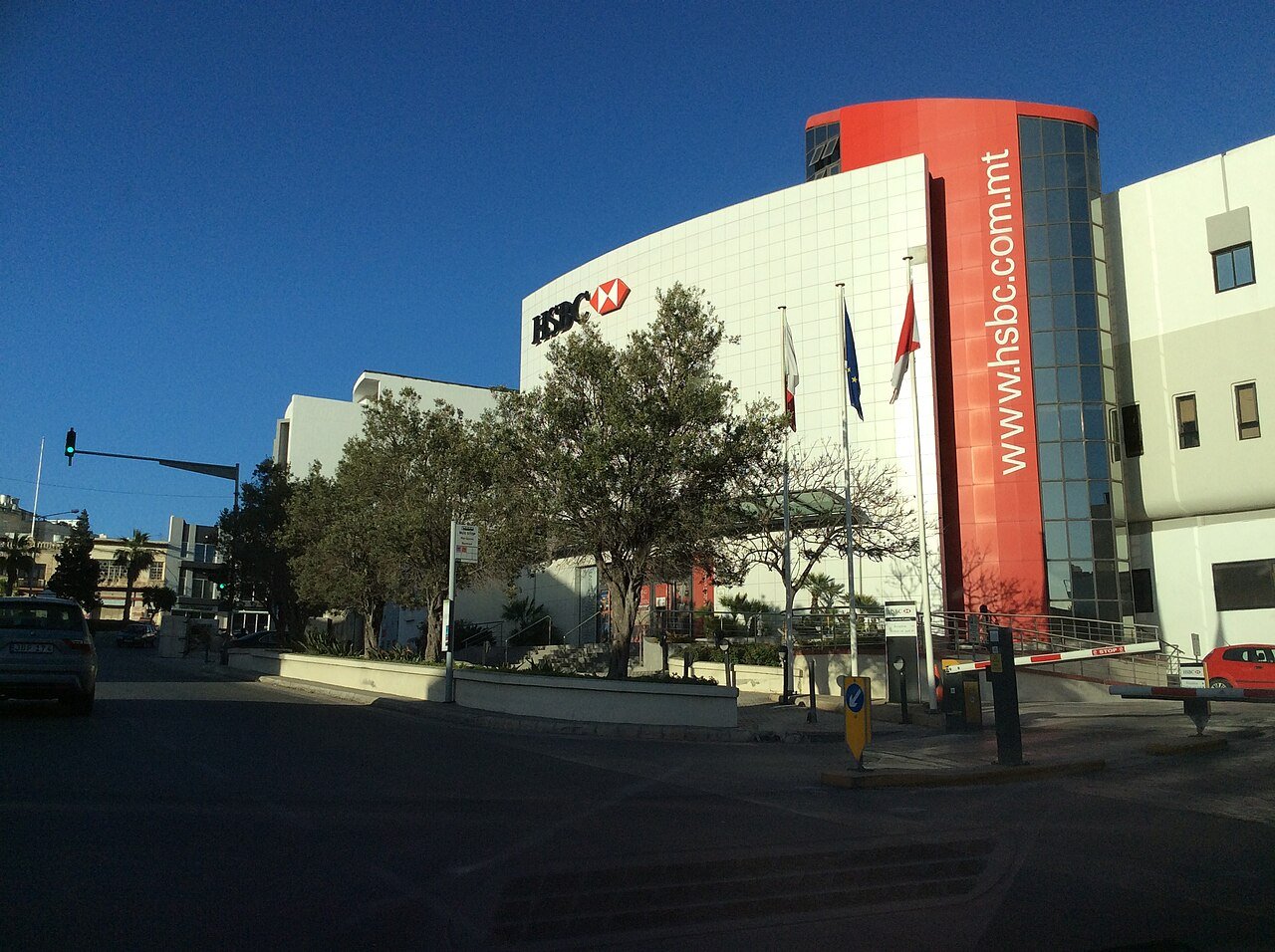
HSBC Bank in Malta. Credit: Wikimedia Commons Continental Europe CC BY SA 4.0
HSBC Malta is set to change hands after its parent company confirmed on Friday that CrediaBank, formerly known as Attica Bank, has been selected as the preferred bidder.
The agreement marks the beginning of a new phase of exclusive negotiations between HSBC Holdings and CrediaBank, as advisors on both sides finalize details ahead of the required regulatory approvals.
Exclusive Talks Underway
In a statement, HSBC Malta said its parent company, HSBC Holdings, has entered into exclusive discussions with CrediaBank over its 70.03% stake in the Maltese subsidiary. The remaining shares are publicly listed on the Malta Stock Exchange.
Any final deal will be subject to approval from the Malta Financial Services Authority (MFSA) and the European Central Bank (ECB) — a process expected to take several months.
CrediaBank also confirmed the talks in a filing with the Athens Stock Exchange, but cautioned that “no agreement has been reached” and that there is “no guarantee” a definitive deal will be signed.
“This is a milestone for Greece’s banking sector”
Greek Finance Minister Kyriakos Pierrakakis welcomed the development, describing the pending transaction as “a milestone for Greece’s banking sector.”
“This is an important step for both institutions and a milestone for Greece’s banking sector, demonstrating the strength, resilience, and outward vision of our financial system,” he said.
He added that the deal also highlights the benefits of the European Banking Union, enabling cross-border investment and greater regional financial integration.
Beyond its financial significance, Pierrakakis argued, the acquisition carries broader geopolitical weight, strengthening ties between Greece and Malta and supporting deeper cooperation across Southern Europe and the Mediterranean.
From Attica Bank to CrediaBank
CrediaBank is Greece’s fifth-largest bank, recently rebranded from its previous identity as Attica Bank.
The institution is backed by both the Greek state, which holds a 36% stake via the country’s sovereign wealth fund, and Thrivest Holding Ltd, which owns 57% of the bank.
Thrivest is controlled by shipping magnates Dimitris Bakos, Yiannis Kaimenakis, and Alexandros Exarchou.
The rebrand and acquisition strategy are widely viewed as part of CrediaBank’s efforts to reposition itself as a stronger competitor to Greece’s four largest banks, which dominate the domestic market.
A Troubled Past
As Attica Bank, the institution faced significant challenges. A 2016 European Central Bank inspection revealed deep weaknesses in governance and a loan portfolio weighed down by non-performing exposures. The findings triggered successive rounds of recapitalization, restructuring, and oversight by Greek authorities.
In recent years, the bank has worked to clean up its balance sheet, cutting down on bad loans and tightening governance. In March 2025, Moody’s upgraded its baseline credit assessment to B1, signaling cautious confidence in its recovery.
Next Steps
If completed, the acquisition of HSBC Malta would represent one of the most significant cross-border banking deals involving a Greek institution in recent years. It would also be seen as a step toward bolstering CrediaBank’s credibility and footprint within the European financial system.
Several other bidders had expressed interest in HSBC Malta over the past year, though many dropped out after encountering regulatory and institutional resistance.
For now, the deal remains conditional on regulatory approval — and while both banks express optimism, all sides acknowledge that the process could take time before any final signatures are in place.